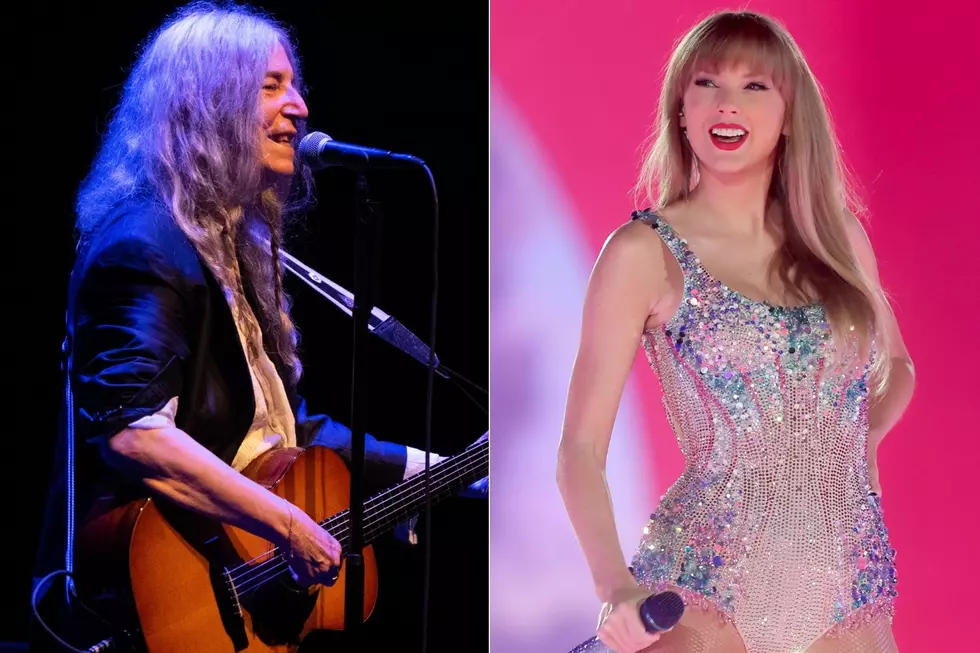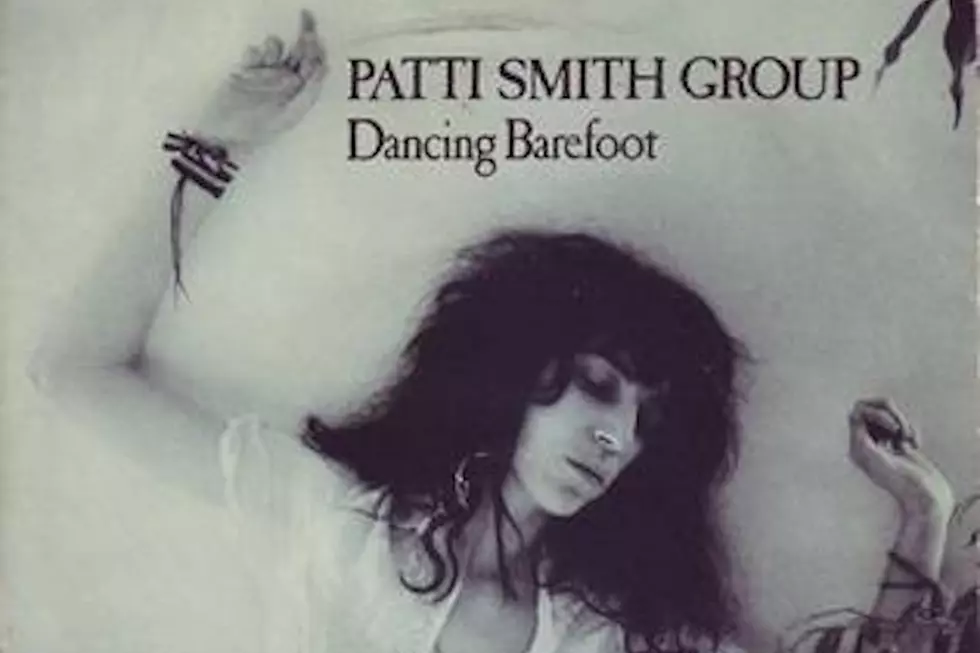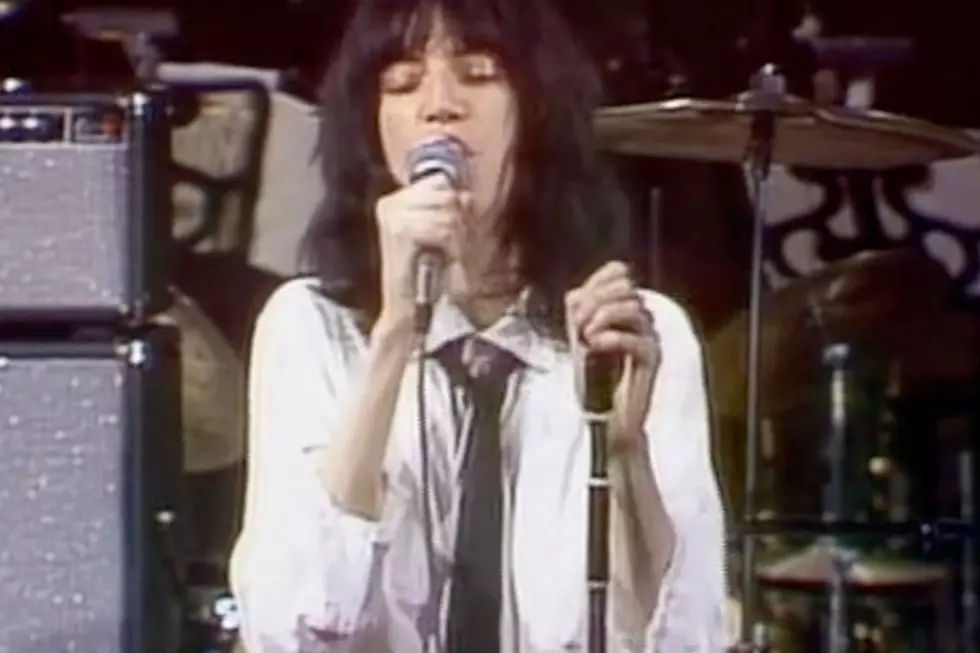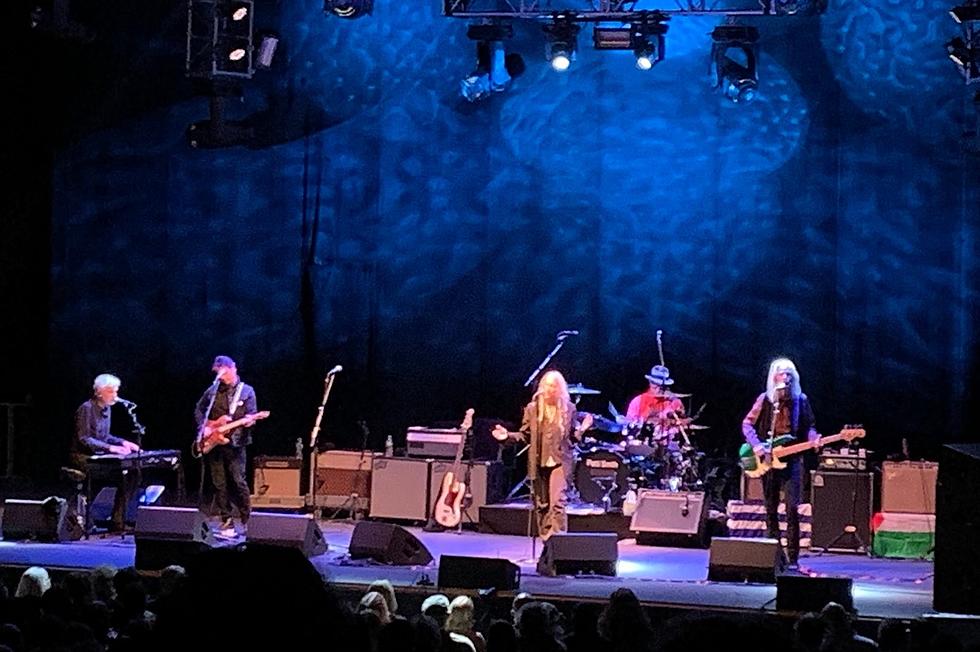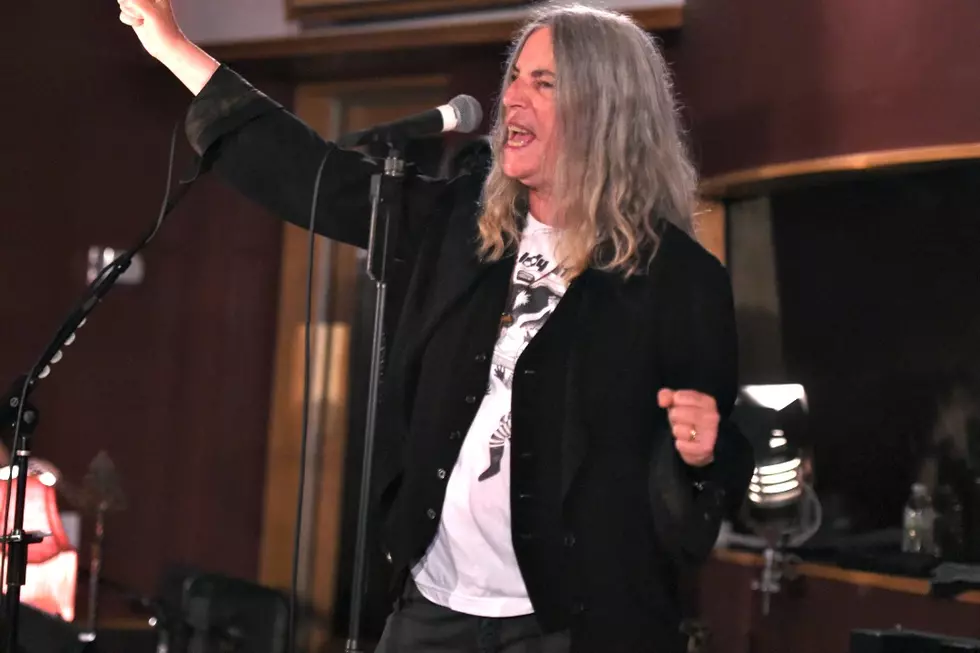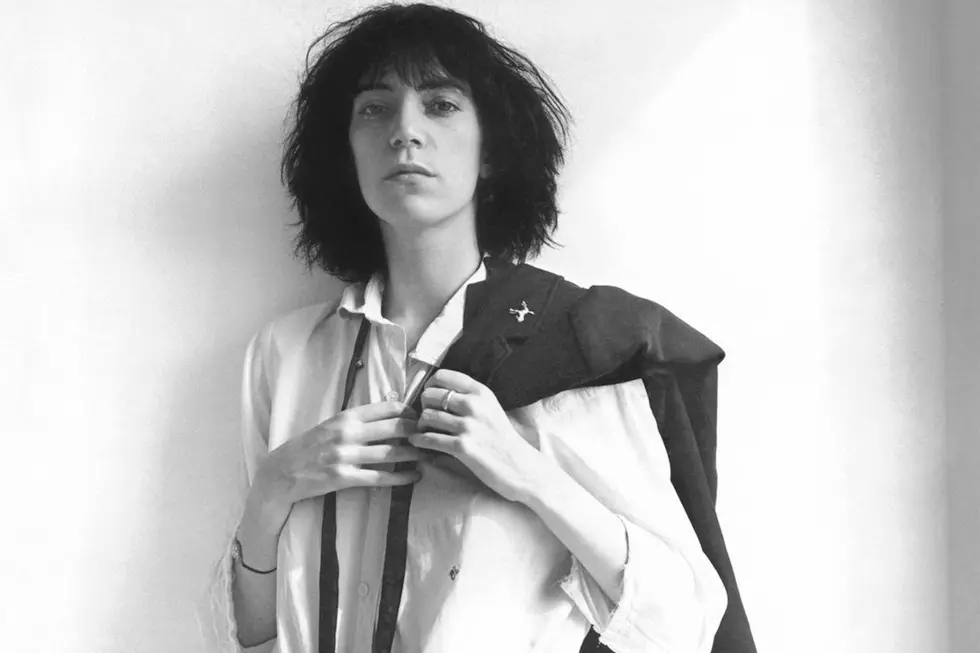
How Patti Smith Made a Definitive Opening Statement With ‘Horses’
When former CBS Records executive Clive Davis formed Arista Records in November 1974, he immediately scored huge hits with best-selling releases from Barry Manilow and Melissa Manchester. That eventually led to the signing of artists like Dionne Warwick and Whitney Houston.
Yet even as Manilow's Tryin' to Get the Feeling was streaking to three million in sales thanks to slickly produced, middle-of-the-road cuts like "I Write the Songs," a revolution was afoot. Two months later, on Dec. 13, 1975, Arista released Patti Smith's proto-punk triumph Horses.
Juxtapositions like that, Smith later noted, were important to note. "The main mission in Horses was that rock 'n' roll in 1974, at least in America, was going through a difficult transition," she said in a 2015 interview with Mojo. "The culture was shifting into opulence and decadence. I did Horses as a bridge, a touchstone, for the future – and if that sounds presumptuous, what's more presumptuous than youth?"
She was young in 1974, but not too young. The 28-year-old was already a seven-year veteran of New York City's arts and music scenes, having lived with photographer Robert Mapplethorpe and worked with writers like Sam Shepard. Along the way, she'd become known as a poet and a devotee of the writer Arthur Rimbaud – and her initial spoken-word attempts at music reflect that passion. "Originally," collaborator Lenny Kaye said in the same issue of Mojo, "it was Patti's chant-song, my scratchy Gibson Melody Maker and Richard Sohl interpreting our horizontal horizons on the keyboard."
She was an artist, not a musician, but this former bookstore employee's passion for music was nevertheless immense. Her free-form lyrics and the band's garage rock sound grew tighter and tighter and, before 1974 was over, they were playing Max's Kansas City and CBGB in New York, and at Winterland and Whiskey-A-Go-Go on the West Coast.
Even with the addition of guitarist Ivan Kral, they remained decidedly unconventional – a band without a drummer.
One single arrived, prior to Smith's breakthrough: A cover of "Hey Joe" backed with "Piss Factory." Her song-poem as indebted to Beat generation writers as the A-side was to Jimi Hendrix, and Hendrix's ghost factors heavily into the making of Horses.
Smith was there on Aug. 26, 1970 when Hendrix hosted an opening party for Electric Lady, his recording studio. She "exchanged shy pleasantries" with the legend on the steps outside, according to Kaye. Three weeks later, Hendrix was gone. They'd return to Electric Lady to record Horses four years after that, but not before Smith referenced him in her first-ever recorded words. "Hi, Jimi," she whispered, prior to laying down "Hey Joe."
As if to drive home the point, Smith closed Horses with "Elegie," a song originally intended as a tribute to Hendrix, but according to Smith "also Brian Jones, Jim Morrison, Janis Joplin, these people we felt such a loss for." Co-written with Blue Oyster Cult keyboardist/guitarist Allen Lanier, "Elegie" has taken on a deeper meaning over the years as the losses have mounted for Smith. Lanier, who was her boyfriend at the time, is gone now, and "we also lost my husband Fred ['Sonic' Smith of the MC5]; my brother Todd, who was head of my road crew; all four Ramones; Joe Strummer; Jim Carroll," she told Mojo. "We keep adding names." Performed today, "Elegie" has become something of a roll call, celebrating and keeping alive the memories of those who have passed.
Smith finally added a drummer, Jay Dee Daugherty, prior to recording Horses. Their somewhat organic, improvisational songs had to be reworked to accommodate a more conventional rhythm section, a process that took about six weeks of studio time. Kaye notes that producer John Cale was pushing for a more arranged record, where the band wanted to capture something closer to their live sound. Still, as difficult as it may have been back then, the decision to add Daugherty is now indisputable: He's remained on the drum kit for Smith ever since.
Horses opens with one of the strongest artistic statements in music history. "Jesus died for somebody's sins but not mine," Smith declares, a line from a poem entitled "Oath" that she'd written years earlier. Both the lyric and the tempo build momentum until the band is deeply entrenched in their definitive cover of Van Morrison and Them's "Gloria." It's a performance that simultaneously opens the door to music's future, while honoring its past. As with the choice of Electric Lady, this was no accident. "We were as much a part of the past we celebrated as a harbinger of change," Kaye said.
The same evening that they recorded "Gloria," in a session that started around midnight, Smith and company laid down what became track two on the album, "Redondo Beach," a tragic tale of a post-argument suicide set to a happy reggae beat. By 8 a.m., they were done with their first day of recording, two songs in the can.
Track three, "Birdland," started life as another Smith poem, this one based on Peter Reich's A Book of Dreams. What began as a short piece grew to 9:15 in the studio, "gathering whirlwind imageries in its stormy wake," as Kaye noted. "Land," the album's only other nine-minute track, was improvised in the studio – and featured an opening section titled "Horses" that gave this project its name. "Kimberly" and "Break it Up" round out the album's eight tracks of perfect imperfection.
"I didn't know how to do better, having had no studio experience, and being keen on presenting an album that was authentic and sounded like us," Smith told Mojo. "I don't have any regrets. I understand its flaws, technical or otherwise, its hubris." Those flaws are, in fact, what make Horses such an essential album in rock history.
Like the Beatles on the Ed Sullivan show a decade earlier, the project inspired a generation of young artists to make their own music – even if the connections were, at first, difficult to find. (R.E.M.'s Michael Stipe, for example, claimed that Horses made him want to be a musician, saying that it "tore my limbs off and put them back on in a whole different order.") That sweeping influence on the succeeding punk, new wave and alternative genres remains this album's greatest legacy.
Appropriately enough, the Library of Congress added Horses to the National Recording Registry in 2009 alongside R.E.M.'s "Radio Free Europe" – and Little Richard's "Tutti Frutti" – placing the project almost perfectly at the fulcrum balancing the old and the new. "What I'm most proud of is that those who truly heard Horses, who found in it inspiration and purpose, don't sound like us at all," Kaye added.
That kind of monumental status tends to obscure the fact that Horses was made by a bunch of broke kids with day jobs who couldn't keep their instruments in tune; that Smith expected to go back to work at the bookstore when it was completed; that the iconic cover photo was taken by legendary photographer Robert Mapplethorpe when he was only known as Patti's best friend and roommate. “Robert called me before the shoot and said, 'I don’t care what you do or what you wear but don’t have spaghetti stains on your shirt,'" Smith told a crowd in 2012 while on tour.
That's just what Horses did in the too-polished '70s: It was suddenly okay again to have proverbial spaghetti stains on one's musical shirt. "'Horses changed my life,' Kaye mused. "It's what we hear when we encounter the random crowd after a show, or run into the stray fan wandering a strange city. And so it did mine."
Classic Rock’s Top Acts
More From Ultimate Classic Rock
